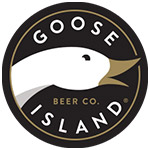Let’s face it, as good as the OG Bourbon County Stout is (and it’ll always be my favorite), it’s the annual variants that make BCS the cultural juggernaught that it’s become. And it’s more than just the ingredients' stories that make the variants so intriguing to me — it’s the creative process. Because whether we’re talking about Coffee BCS, Backyard Rye, or the newly added annual, Proprietors, there’s a unique point of inspiration and ambition behind each one.
Traditionally, the flavors in BCS variants were inspired by the existing flavors and aromatics that came out of the barrel. Coconut, red fruits, coffee — these are all notes underlying the existing Bourbon County Stout recipe and its interaction with the bourbon-soaked oak it ages in. So when the team started playing around with variants, there was an unspoken rule — whatever was put into that beer had to be inspired by and elevate an existing flavor or aroma. No gimmicks.
BCS coffee is the one I look forward to most every year. Of all the barrel-aged stouts blended with coffee, this was the one that always felt most respectful and embracing of what coffee as an ingredient was able to offer. The relative lack of other options in the market was what inspired me and Stephen Morrissey (creative director of Intelligentsia at the time) to start our Uppers & Downers event series exploring innovation in coffee beers. And BCS coffee was the one we measured all others by. That’s not to say it’s a static benchmark. Rather, it’s the collaborative process by which they taste, blend, and select the coffee with people like Jay Cunningham of Intelligentsia that they’re able to produce something unique and stellar each year. This year's process invited a growing team of brewers and roasters together, blind-tasting the coffees on their own, at different blended ratios and extraction rates, to narrow down the field of fresh coffees. Various fruit notes, big roast character, chocolate and sweetness — all were debated over the course of a few weeks. This year’s blend with the Los Delirios coffee from Nicaragua is reminiscent of the Black Cat espresso blends of BCS’ past, with a big roast character, but also a subtle tamarind and orange quality.
But it’s not just the consummate pros that get to direct next year’s variants. Similar to their Fulton & Wood program, Goose’s innovation manager, Mike Siegel encourages a wider team to get involved in experimentation. This year’s BCS Proprietors was the result of a friendly competition, whereby every brewer was given a four-pack of BCS to take home and explore. Di Rodriguez, an intern in the barrel warehouse at the time, set up in her kitchen — where she obsesses over cooking shows after work — and started blending some ingredients she had handy. Toasted pecans, a bourbon barrel-aged maple syrup, and guajillo chiles balance a hefty sweetness with the smoky, savory qualities of the pepper. Rodriguez’s recipe won out, and then the work of scaling the recipe hit the team hard. A direct translation would have required thousands of pounds of pecans, an unrealistic notion for a beer that’s already insanely costly and time-consuming to make. So they got to work rigging up a system that forced the beer over the pecans in a fairly aggressive manner, stripping them of any flavor and sweetness until they were left raw and bitter. “By the time we were done with them, they tasted like nothing, just bitterness,” says Rodriguez. “We got every last bit of what we wanted."
The draw to taste BCS variants is a strong one. At last week’s Rare Day, two year’s worth of BCS variants were on tap with no wait time. But despite being able to walk up and get a pour of those beers within seconds, an hour-long line formed around the corner for a clever Mystery Bar where unknown variants of years past were being served. And the drinkers I spoke with were amazingly adept at guessing their origin — beers like 2010 Vanilla Rye, 2012 Templeton Rye, 2012 Cherry Rye. While people waited in line, folks from Goose were ready with pitchers of this year’s Proprietors to keep them flush.
As much as you might enjoy the flavors and ingredients of this year’s variants, it’s the inspiration and process that makes Bourbon County an institution in the truest sense — years of knowledge-sharing, experimentation, and refinement made possible by new and experienced brewers working side by side. If you’d like to hear more about that program, listen to our Black Friday interview with innovation manager Mike Siegel from last year. It’s a deep dive into one of beer’s most ambition programs.













